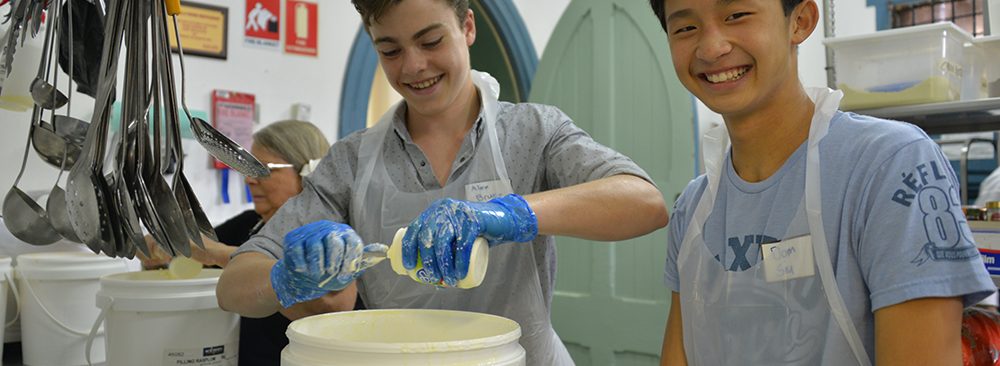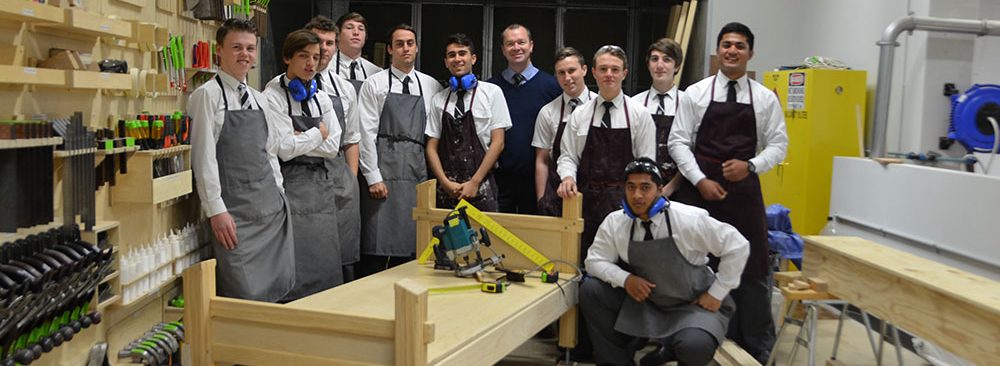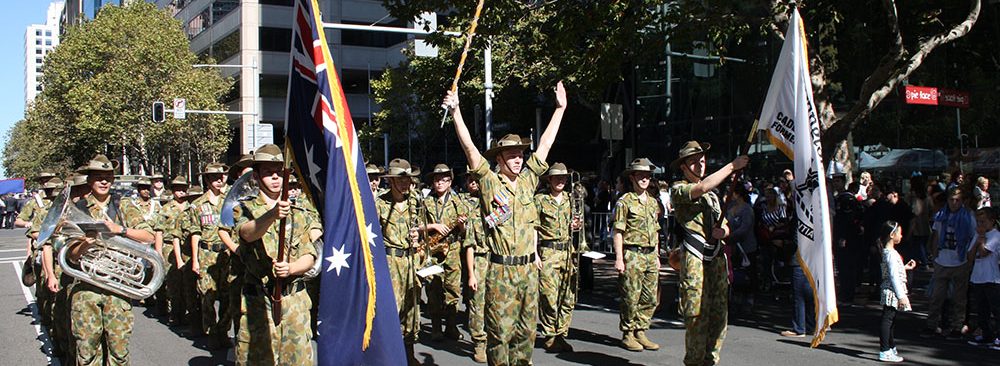If everyone is singing to the same tune
On some days (especially those when the weather is wet or the wind is blowing) a classroom can feel like someone has tuned 20 radios into different stations simultaneously, and then broken all the volume switches. Boys talking at cross purposes, all with opinions they want heard at the same time, all with different things to say.
On Thursday 4 June, things were a little different. Picture 1300 boys in Centenary Hall, making a substantial amount of noise, but with a clear focus and the same tune. For the first time the College’s House Choir Competition brought all eight performances into the same venue at the same time. With each House performing a song that shone attention on their chosen charity for the year, we heard everything from renditions of ‘Tears for Fears’ ‘Shout’ through to a Rick-Rolling ‘Never Gonna Give You Up’ from Le Couteur. Fletcher won the acclaim of the judges and took the win on the day for their version of Crowded House’s ‘Don’t Dream its Over’.
It was a tremendous afternoon, and all of the boys can be proud of the energy and effort and humour that they brought to the occasion. Being part of a choir is being part of something bigger than yourself, and it was great to see boys embrace the anonymity it can bring by lifting their voices, confident that individually none of them would stand out. And together, they shared the success. And, this is in a boys’ school (where the monsters are all supposed to be competitive beasts). What do they say about tides and boats?
So when they filed from the hall, I wondered whether or not their one-in-all-in approach characterises the way they tackle their lives in a classroom? Why is it easier, when we are learning, to consider it a uniquely individual pursuit? Why do boys spend so much time looking at (and wondering about) what everyone else is doing or the mark on everyone else’s assignment? Why do we work together on Johnson Oval, or a volleyball court, or the stage in the hall, but not in the back row of a classroom in the N-Block?
A lot of the conversation around academic success seems to be about ranks and ranking; how well I do compared to the rest of my class, to the rest of the year. At the pointy end for boys completing HSC or IB studies in Years 11 and 12, they are competing hard, but not against each other. They are competing to reach the standards in the syllabus documents, the standards expected by examiners. They are competing to meet grade or mark scales that identify what they can and cannot do. Achieving this gives them access to the top bands of results in their course.
Ironically, there is an arguable gain in moving up a rank or two. Climbing a spot in rank order is only meaningful when the quality of what the individual has done has improved, and they demonstrate this in the final assessments and examinations. The most significant benefit of an individual student’s final results comes when he, and everyone else here at school, improves the quality of their work measured against the standards used by the markers (be they be one of us, in an HSC marking Centre, or an IB marker overseas). There is no real advantage in jumping a spot in rank order, by virtue of someone else not doing so well on a piece of work, and consequently slipping back down.
The Melbourne Graduate School of Education’s Professor John Hattie, in his meta-analysis of the factors that contribute to improved learning, identifies individualistic and competitive approaches as one of the weakest contributors to academic success. His research, drawn from over 800 studies, shines a light on the role that students engaging in ‘reciprocal teaching’, ‘study teams’ and ‘cooperative learning’ has on their progress. He is arguing that learning is not a solo performance. The research base shows it occurs most successfully with and among others, when everyone is singing the same tune. We take this view seriously at Newington with a key dimension of our Learning Framework, being collaboration. We look for ways to embed and build it in both classrooms and assessment.
This can be a difficult shift for students to make, if they see their success like a football game score, or the position on the season’s league table. They get disheartened when they feel they are working hard and they are getting better, but they are not rising to the top of their class. Their sense of success is relative to others, and that is what we need to work on. Boys should not compare their success against others but rather measure their success based on their own improvements. If that confidence and performance grows in all of the boys, irrespective of where their rank may lie, they are all winning individually.
If you get a chance next year to pop your head into Centenary Hall to see the House Choir Competition, I recommend you do. You will see another side to the boys, both those singing and those supporting their mates. This year’s performances by each of the Houses were the best we have seen so far, and every one of the boys can enjoy being part of that. Let there be more bests to be seen in the second half of the year in lots of different ways.
Mr Trent Driver
Head of Academic / Deputy Head of Stanmore

















































































































































